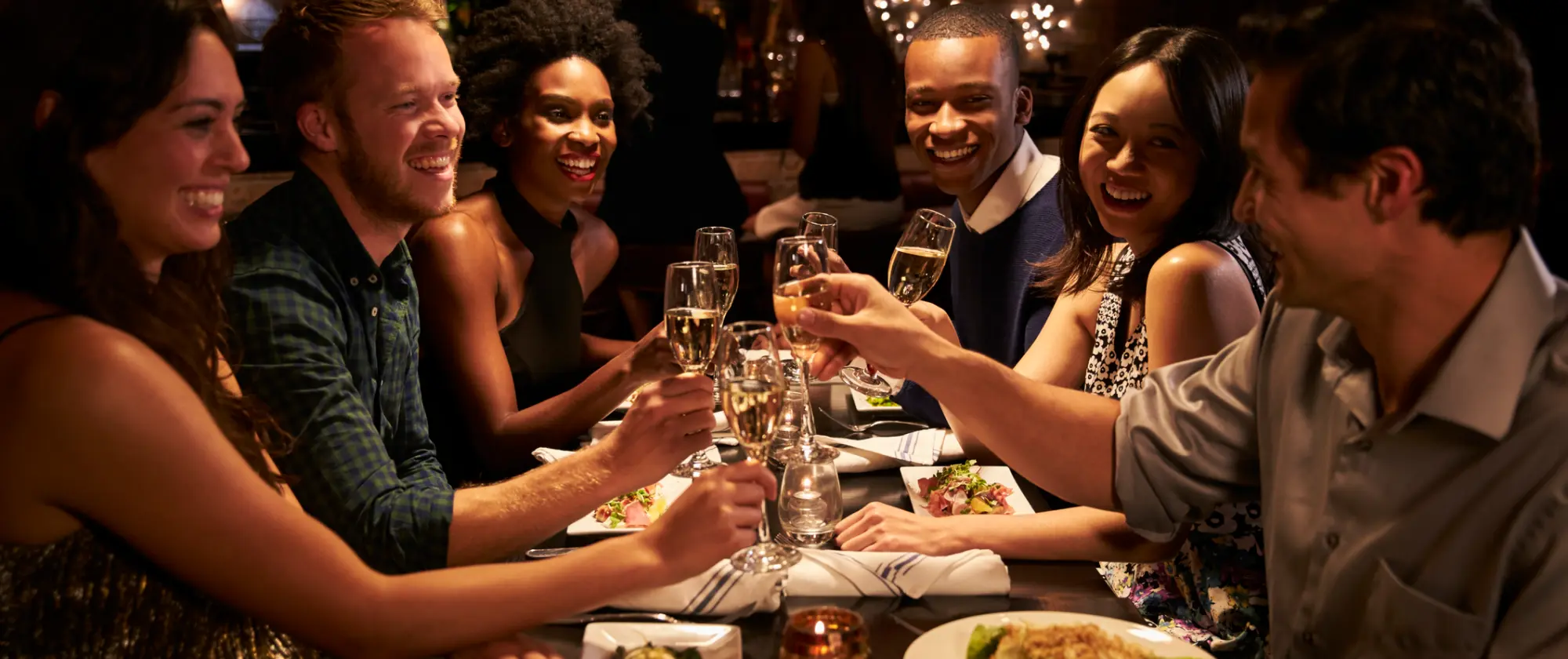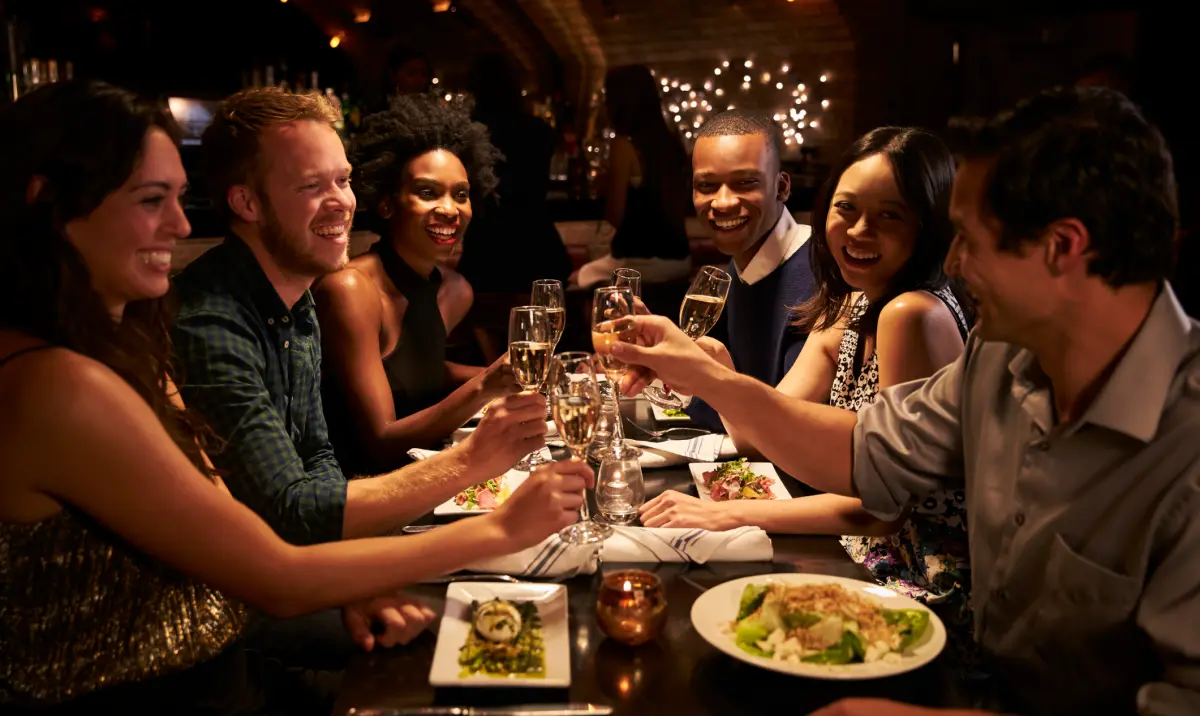

How to Obtain a Liquor License for Restaurant in New York?
Obtaining a liquor license is a pivotal step for restaurants in New York aiming to serve alcoholic beverages legally. Not only does this license expand your menu options, but it can also significantly boost revenue and enhance the dining experience for your guests. However, the process of securing a liquor license in New York is highly regulated and requires thorough preparation.
From navigating complex state laws to understanding eligibility criteria, every step must be meticulously planned to avoid costly delays or denials. Whether you’re opening a new restaurant or adding alcohol service to your existing business, knowing the ins and outs of the application process is essential for a smooth journey.
In this comprehensive guide, we’ll walk you through everything you need to know about obtaining a liquor license in New York—from understanding the types of licenses available to tips for staying compliant with state regulations.
What Is a Liquor License?
A liquor license is a legal authorization granted by state or local authorities, allowing a restaurant or business to sell alcoholic beverages to customers. For restaurant owners in New York, obtaining the correct type of liquor license is crucial for both compliance with the law and enhancing the dining experience.
Definition and Purpose
A liquor license serves as both a legal requirement and a safeguard for public safety and order. By obtaining one, restaurants can:
- Legally sell alcoholic beverages to patrons.
- Enhance customer experience by offering drinks that complement meals.
- Increase revenue by tapping into the profitable beverage market.
Failing to secure a license can result in fines, legal action, and even the closure of your business. Understanding its purpose ensures you’re compliant and prepared to operate successfully.
Types of Liquor Licenses in New York
New York offers several types of liquor licenses, tailored to different business needs:
- On-Premises License:
- Allows the sale and consumption of alcoholic beverages on the premises.
- Suitable for full-service restaurants and bars.
- Beer and Wine License:
- Permits the sale of beer and wine only.
- Ideal for smaller establishments or casual eateries.
- Temporary Permits:
- Enables businesses to serve alcohol for a limited time.
- Commonly used for special events or during the pending approval of a full license.
Each type has specific requirements and limitations, making it essential to choose the right one for your business model.
Understanding New York’s Liquor Laws
Navigating New York’s liquor laws is crucial for restaurant owners who wish to serve alcohol. These laws ensure the responsible sale and consumption of alcoholic beverages while protecting the interests of communities. To operate legally and avoid penalties, understanding the Alcohol Beverage Control (ABC) laws and licensing requirements is essential.
Overview of Alcohol Beverage Control (ABC) Laws
New York’s ABC laws regulate how alcohol is manufactured, distributed, and sold. For restaurants, these laws govern essential aspects such as:
- Permissible Hours of Sale:
- Alcohol sales are restricted during specific hours, typically after 4 a.m. and before 8 a.m., though local ordinances may impose stricter hours.
- Prohibited Sales:
- Selling alcohol to minors or visibly intoxicated individuals is strictly prohibited.
- Zoning Restrictions:
- Alcohol cannot be sold within a certain distance of schools, churches, or places of worship without special approval.
Failure to comply with these laws can lead to fines, license suspension, or even revocation. Knowing these regulations upfront can save your business from costly mistakes.
Licensing Authorities in New York
Liquor licensing in New York is overseen by the New York State Liquor Authority (NYSLA), with additional regulations enforced by local municipalities.
- Role of NYSLA:
- Approves liquor licenses and enforces ABC laws.
- Conducts inspections to ensure compliance with state regulations.
- Handles complaints and violations.
- Local Municipal Requirements:
- Cities and towns may have additional licensing or permit requirements.
- Some areas impose stricter zoning or public hearing processes before approval.
By coordinating with both state and local authorities, you can ensure a smoother application process and maintain compliance.
Eligibility Requirements for a Liquor License
Before applying for a liquor license in New York, it’s essential to understand the eligibility criteria. The state has specific requirements to ensure that only responsible and qualified individuals or businesses can legally sell alcohol. Meeting these requirements can save time and prevent unnecessary delays or denials during the application process.
Who Can Apply for a Liquor License?
To be eligible for a liquor license in New York, applicants must meet the following criteria:
- Age and Residency Requirements:
- Applicants must be at least 21 years old.
- Business owners applying must be U.S. citizens or legal residents.
- Ownership and Business Requirements:
- Only the owner(s) of the business can apply.
- Partnerships, LLCs, or corporations must designate a principal owner or officer as the applicant.
These requirements are designed to ensure that the individual or entity responsible for alcohol sales is accountable under the law.
Restrictions and Disqualifications
Not everyone is eligible for a liquor license in New York. Several factors can disqualify an applicant:
- Proximity Restrictions:
- Licenses may not be granted to businesses located within 200 feet of a school or place of worship.
- Exceptions can sometimes be made, but they often require additional approvals or hearings.
- Criminal Record Considerations:
- Individuals with felony convictions may face disqualification unless they have obtained a Certificate of Relief from Disabilities or Good Conduct.
- Violations of prior liquor licenses, such as suspension or revocation, can also lead to ineligibility.
Understanding these restrictions helps ensure your application is compliant and increases the likelihood of approval.
Steps to Apply for a Liquor License
Applying for a liquor license in New York involves a detailed process that requires careful preparation. Following the steps below will help ensure your application is complete and increase the likelihood of approval.
Preparing Your Application
Before submitting your application, you’ll need to gather and organize key documents. Proper preparation can prevent delays and errors in the process:
- Documents You’ll Need:
- Business formation documents (e.g., LLC or Corporation papers).
- Proof of ownership or lease for the restaurant location.
- Floor plans detailing the premises layout.
- A Certificate of Occupancy or Letter of No Objection from your local municipality.
- How to Complete the NYSLA Application Form:
- Fill out all sections accurately, including business details, ownership structure, and intended alcohol sales.
- Include diagrams and supplemental documents as required.
Taking the time to compile these documents ensures a strong start to your application process.
Filing Your Application
Once your paperwork is ready, the next step is submitting your application to the New York State Liquor Authority (NYSLA).
- Submission Process:
- Applications can be submitted online via the NYSLA website or mailed directly to their office.
- Attach all required documentation and ensure every field on the application form is complete.
- Application Fees and Payment Methods:
- Fees vary depending on the type of license and location.
- Payment can typically be made via credit card, money order, or certified check.
Double-check your submission to ensure accuracy, as incomplete or incorrect applications may be returned, delaying the process.
Navigating the Approval Process
After submission, your application will undergo a review by the NYSLA, and you may need to address additional requirements or inspections.
- Inspections and Site Visits:
- An NYSLA representative will inspect your premises to verify compliance with state and local regulations.
- Ensure your site matches the submitted floor plans and adheres to safety codes.
- Responding to Inquiries or Objections:
- Public objections or comments may arise during the review process.
- Be prepared to address concerns or attend hearings if necessary.
Approval timelines vary, but keeping communication open with the NYSLA and addressing issues promptly can help speed up the process.
Costs Involved in Obtaining a Liquor License
Obtaining a liquor license in New York involves various costs, including application fees, ongoing renewal expenses, and potential hidden charges. Understanding these costs upfront can help restaurant owners budget effectively and avoid unexpected financial burdens.
Application and Permit Fees
The initial cost of applying for a liquor license depends on the type of license and your restaurant’s location.
- Breakdown of Costs by License Type:
- On-Premises Liquor License: $1,500–$4,800 (varies by county).
- Beer and Wine License: $960–$1,280.
- Temporary Permits: $128 per event.
- Hidden Expenses to Anticipate:
- Legal or consulting fees for assistance with the application.
- Additional permits or inspections required by local authorities.
Being aware of these costs helps you allocate resources efficiently and avoid surprises during the application process.
Renewal and Maintenance Costs
Liquor licenses are not one-time expenses; they require periodic renewal to remain valid.
- How Much to Budget Annually:
- Renewal fees vary by license type but are typically lower than the initial application cost.
- Annual renewals often range from $960 to $2,000, depending on the license.
- Avoiding Late Fees:
- Late renewal submissions can incur penalties or risk suspension of the license.
- Mark renewal deadlines on your calendar and set reminders for timely submission.
Budgeting for both initial and ongoing costs ensures your restaurant stays compliant and avoids financial strain.
Common Challenges and How to Overcome Them
Securing a liquor license in New York can be a complex process, often fraught with challenges that may delay or jeopardize approval. Understanding these common hurdles and how to address them can help restaurant owners navigate the process more effectively.
Delays in Processing Applications
Application delays are one of the most common challenges faced by applicants. These delays can stem from various factors, including incomplete paperwork or lengthy review processes.
- Typical Reasons for Delays:
- Missing or incorrect documents in the application package.
- High volume of applications being processed by the New York State Liquor Authority (NYSLA).
- Issues arising from zoning or community objections.
- Tips to Expedite Your Approval:
- Double-check your application for completeness before submission.
- Work with a liquor license consultant or attorney to ensure compliance.
- Maintain regular communication with the NYSLA to track your application’s progress.
By taking these proactive measures, you can reduce the likelihood of delays and keep your project on schedule.
Handling Objections from the Community
Community objections can arise during the application process, especially if residents or local organizations are concerned about the impact of your restaurant serving alcohol.
- How to Address Neighborhood Concerns:
- Attend public hearings to listen to and address community feedback.
- Highlight measures you’re implementing, such as responsible alcohol service and security plans, to minimize potential issues.
- Build positive relationships with local residents by engaging with them early and often.
- Building Positive Relationships with Locals:
- Partner with community groups or sponsor local events to establish goodwill.
- Demonstrate a commitment to operating responsibly and adhering to all regulations.
Taking a collaborative approach can help resolve objections and foster community support, increasing the chances of approval.
Tips for Successfully Obtaining a Liquor License
Obtaining a liquor license in New York can be challenging, but following best practices can simplify the process and improve your chances of approval. These actionable tips can help you navigate the complexities efficiently.
Hiring a Liquor License Consultant
Working with a professional consultant can save time and minimize errors during the application process.
- When to Consider Professional Help:
- If you’re unfamiliar with New York’s liquor laws or the application process.
- When facing complex issues such as community objections or zoning restrictions.
- Benefits of Expert Guidance:
- Consultants understand the nuances of the application process and can help you avoid common mistakes.
- They maintain communication with the New York State Liquor Authority (NYSLA) on your behalf.
- Hiring a consultant can expedite approval, saving you time and potential frustration.
By investing in professional assistance, you ensure a smoother, more efficient licensing process.
Staying Compliant with New York Laws
Maintaining compliance with state and local regulations is essential to both obtaining and retaining your liquor license.
- Record-Keeping Best Practices:
- Keep detailed records of all alcohol purchases and sales.
- Maintain copies of licenses, permits, and inspection reports for easy access.
- Training Staff on Responsible Alcohol Service:
- Provide employees with training on identifying intoxicated customers and verifying IDs.
- Consider certifications like Alcohol Training Awareness Program (ATAP), which can improve compliance and customer safety.
Adopting these practices not only helps you meet legal requirements but also establishes your reputation as a responsible business operator.
Alternatives to a Full Liquor License
Not all restaurants require a full liquor license to offer alcohol. Depending on your business model and goals, alternative permits can provide flexibility while saving time and money. These options can be ideal for smaller establishments or specific situations.
Temporary Permits for Events
Temporary permits allow businesses to serve alcohol for a limited time, often for special occasions or while awaiting a full license.
- Who Qualifies for a One-Day Permit?
- Restaurants hosting private events such as weddings or corporate gatherings.
- Businesses seeking to serve alcohol at pop-up events or community festivals.
- How to Apply for Temporary Licenses:
- Submit an application to the New York State Liquor Authority (NYSLA) at least 15 days before the event.
- Include details such as the event date, location, and expected number of attendees.
Temporary permits provide a quick and cost-effective way to offer alcohol without committing to a full license.
Beer and Wine Only Licenses
For establishments that don’t plan to serve hard liquor, a beer and wine license is a simpler and more affordable alternative.
- When to Choose This Option:
- Ideal for casual dining restaurants, cafes, or bistros where beer and wine complement the menu.
- Suitable for businesses that want to avoid the complexities of a full liquor license.
- Advantages and Limitations:
- Advantages:
- Lower application fees and renewal costs.
- Streamlined approval process compared to full licenses.
- Limitations:
- No spirits or cocktails can be served under this license.
- Advantages:
Choosing the right alternative depends on your restaurant’s needs and clientele, offering flexibility without compromising compliance.
Renewing and Updating Your Liquor License
Securing a liquor license is just the beginning. To maintain your license, it’s crucial to understand the renewal process and how to handle updates if your business undergoes changes. Staying on top of these tasks helps you avoid interruptions to your ability to serve alcohol.
Renewal Process in New York
Liquor licenses in New York are not perpetual and must be renewed periodically to remain valid.
- Key Deadlines to Remember:
- The New York State Liquor Authority (NYSLA) typically notifies license holders 90 days before the expiration date.
- Renewal applications must be submitted before the license expires to avoid penalties or disruptions.
- Requirements for Renewal Applications:
- Proof of continued ownership and operation of the licensed premises.
- Payment of renewal fees based on your license type.
- Updated compliance records, including alcohol sales logs and employee certifications.
Timely renewals ensure uninterrupted service and avoid potential fines or license suspension.
Transferring or Modifying a License
If your business undergoes significant changes, such as a new owner or relocation, your liquor license must be updated accordingly.
- How to Update License Details:
- For changes like a new address or alteration of premises, submit a modification request to the NYSLA.
- Include updated floor plans, business details, and any additional required documents.
- Rules for Selling or Buying a Licensed Restaurant:
- Liquor licenses are not automatically transferable to new owners.
- The buyer must apply for a new license or a temporary permit during the transition period.
Keeping your liquor license up to date ensures compliance with state regulations and prevents legal complications.
Key Takeaways
Obtaining a liquor license for your restaurant in New York is a vital step in legally serving alcohol and boosting your establishment’s profitability. Here are the key points to remember:
- Understand the Importance: A liquor license is essential for serving alcohol legally and avoiding fines or legal issues.
- Familiarize Yourself with New York’s Liquor Laws: Adhere to the Alcohol Beverage Control (ABC) laws and licensing authority requirements to ensure compliance.
- Meet Eligibility Requirements: Ensure you qualify, avoiding common disqualifications such as proximity to restricted locations or criminal record issues.
- Prepare for the Application Process: Gather all necessary documents, complete the NYSLA application accurately, and budget for the costs involved.
- Explore Alternatives: If a full license is not feasible, consider options like temporary permits or beer and wine-only licenses.
- Maintain Compliance Post-Approval: Renew your license on time, update details as needed, and train staff to follow alcohol service laws.
By following these steps and tips, you can navigate the liquor licensing process with confidence and set your restaurant up for success in serving alcohol legally and responsibly.
ABOUT THE AUTHOR
Erkin Coban
Your Customers Deserve The Best
And we got Menuviel for them.
The fastest and easy-to-use online QR menu with 12+ unique features. Choose Menuviel and elevate your service quality to the next level.
Use free for the first 30 days.

In This Article

Free AI Tools for Restaurants
TRY NOW ➜

Collect positive Google reviews
You can boost your restaurant’s credibility by effortlessly gathering Google reviews directly through your menu.





